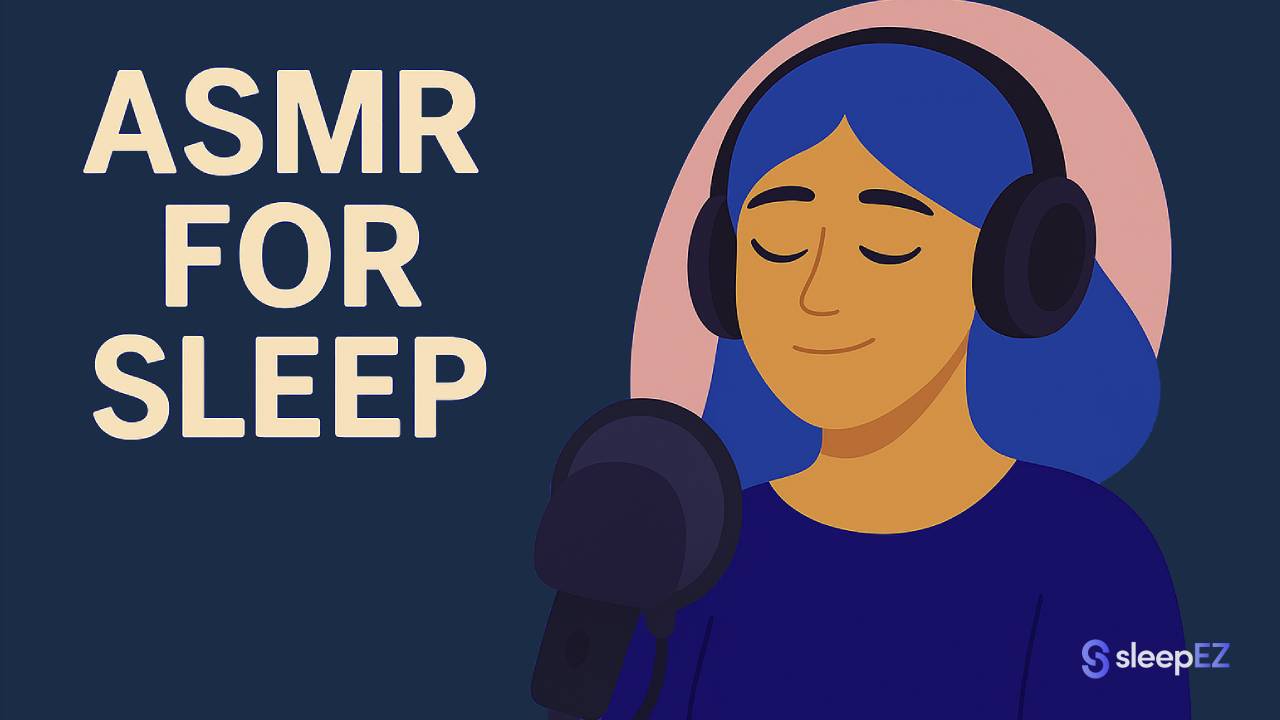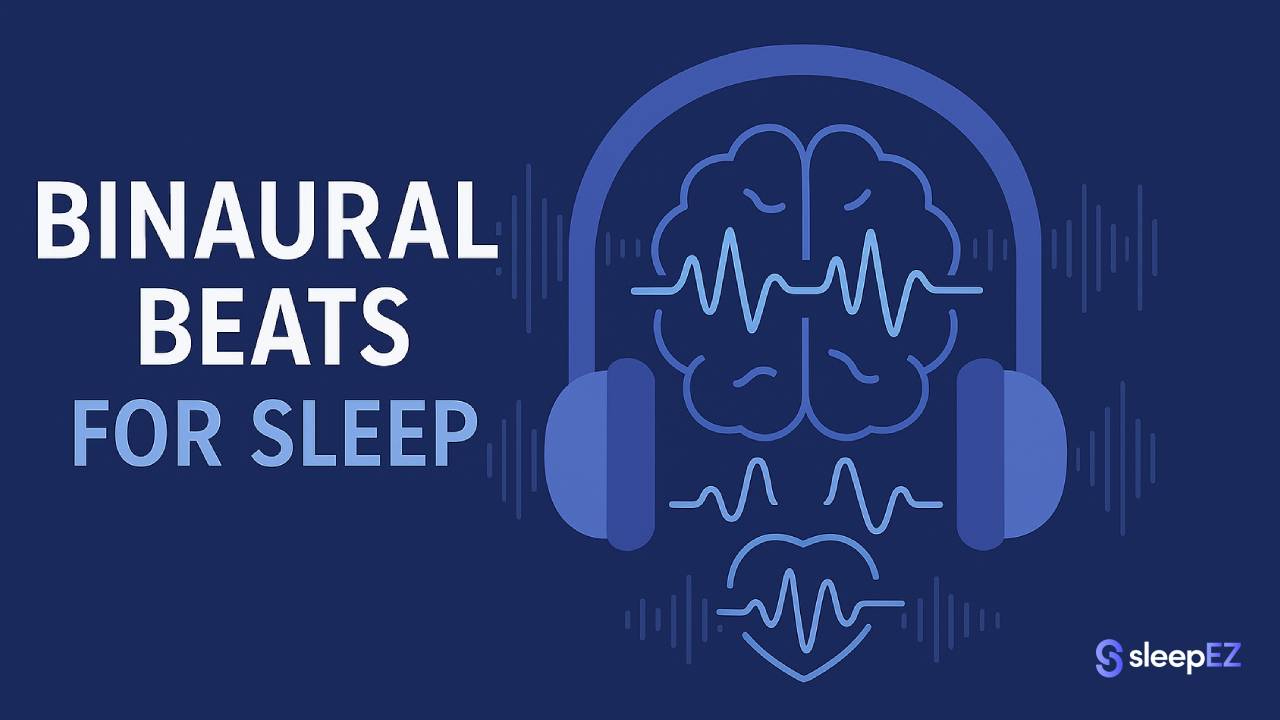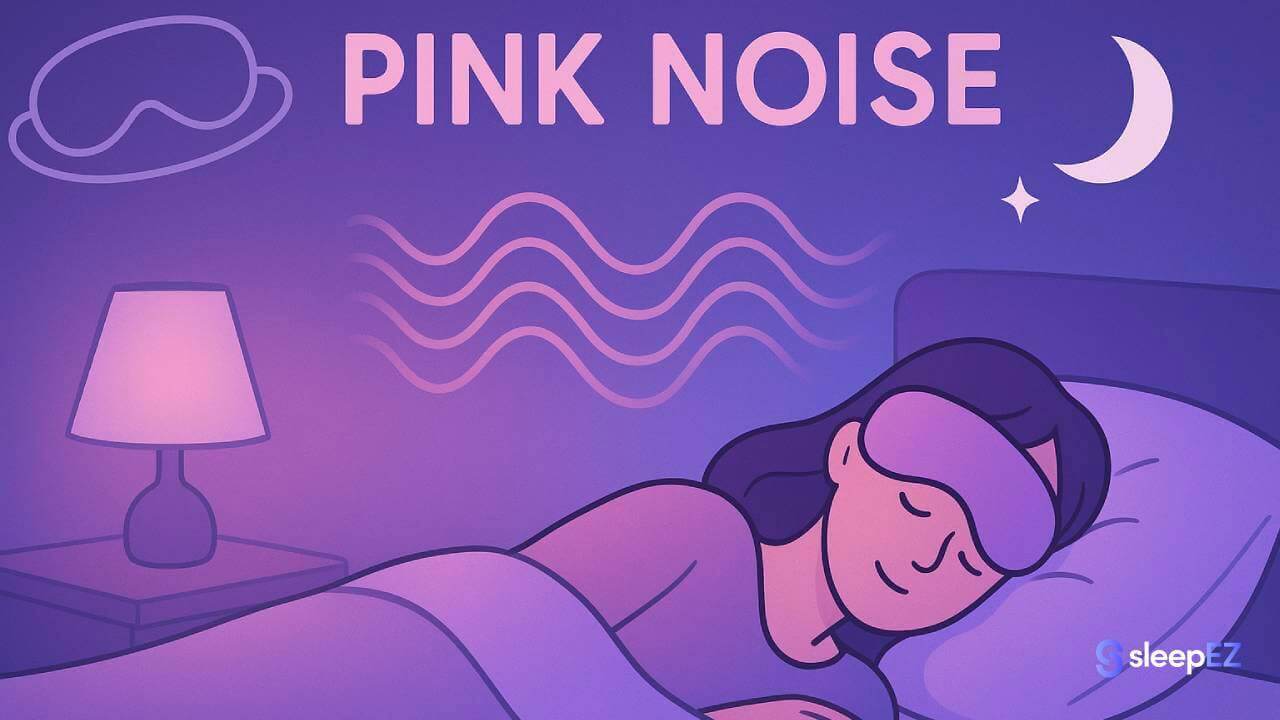ASMR can help you fall asleep faster and sleep more deeply. This tingling sensation triggered by certain sounds has become a popular natural sleep aid for millions of people worldwide.
Whether you're new to ASMR or curious about using it for better sleep, this guide provides curated ASMR video recommendations proven to help with sleep, plus everything you need to start tonight.
What Is ASMR?
ASMR stands for Autonomous Sensory Meridian Response. It's a pleasant tingling feeling that starts at the top of your head and can spread down your neck and spine. This sensation happens when you hear, see, or feel certain triggers like whispers, gentle tapping, or soft personal attention.
The feeling is completely natural and harmless. About 1 in 5 people experience ASMR, though the intensity varies from person to person. Some feel strong tingles, while others simply find ASMR content deeply relaxing without physical sensations.
ASMR became popular online in the late 2000s when people started sharing videos designed to trigger these responses. Today, millions of ASMR videos exist on platforms like YouTube, covering everything from whispered storytelling to roleplay scenarios.
Read: Best Ear Plugs for Sleeping
Why Does ASMR Make Me Sleepy?
ASMR naturally promotes sleepiness through several mechanisms that work together to calm your mind and body.
Psychological Effects
ASMR triggers a deep relaxation response that reduces stress and anxiety. The gentle, predictable sounds help quiet racing thoughts and mental chatter that often keep people awake. This focused attention on soothing stimuli creates a meditative state similar to mindfulness practices.
Biological Changes
Research suggests ASMR may increase the release of feel-good chemicals like dopamine and oxytocin while reducing cortisol (stress hormone) levels. These changes activate your parasympathetic nervous system, the "rest and digest" mode that prepares your body for sleep.
The slow, rhythmic nature of most ASMR content also mimics the natural slowing of brain waves that occurs as you transition from wakefulness to sleep.
Does ASMR Help You Sleep?
Early research shows promising results for ASMR as a sleep aid, though studies are still limited. A 2018 study found that people who experience ASMR reported better mood and reduced stress after watching ASMR videos.
Many users report that ASMR helps them:
- Fall asleep faster (within 10-30 minutes instead of hours)
- Feel more relaxed at bedtime
- Experience fewer racing thoughts
- Sleep more deeply through the night
- Wake up feeling more rested
However, ASMR doesn't work for everyone. People respond differently to triggers, and some find certain sounds irritating rather than relaxing. The key is experimenting to find what works for your brain.
Best ASMR Videos for Sleep
YouTube ASMR for sleep offers the largest selection of free, high-quality content specifically designed for bedtime relaxation.
These curated recommendations represent the most effective sleep-inducing videos, featuring proven triggers and trusted creators.
For longer sessions, look for ASMR compilation for sleep videos that combine multiple triggers in extended formats to prevent mid-sleep interruptions.
For Beginners: Start Here
"ASMR For Sleep" by Jojo's ASMR Perfect introduction to sleep ASMR with gentle triggers and soothing voice. This video combines multiple trigger types to help you identify what works best for your relaxation.
"ASMR | Whispers and Tapping for Deep Sleep" by Sarah Lavender ASMR Features the two most popular sleep triggers - soft whispers and rhythmic tapping. Sarah's consistent pacing makes this ideal for those new to ASMR who want to experience classic triggers.
Quick Sleep Solutions
"ASMR Fall Asleep in 30 Minutes (personal attention, tingly)" by Safe Space ASMR Designed specifically for fast sleep onset with focused personal attention triggers. The 30-minute format prevents all-night audio that might disrupt sleep cycles.
"ASMR | Four Triggers to Fall Asleep Instantly (whispered)" by Sarah Lavender ASMR Combines four proven sleep triggers in a concentrated format for those who fall asleep quickly to ASMR.
For Sensitive Sleepers: No Talking Options
"ASMR INTENSE HAND SOUNDS NO TALKING"
Pure trigger sounds without voice distractions. Ideal for people who find voices stimulating rather than relaxing.
"ASMR Addictive Triggers for Instant Sleep - ASMR No Talking" by Ana ASMR
Features various trigger combinations without spoken content, perfect for maintaining focus on physical sensations rather than words.
Different Trigger Types to Explore
Wooden Sounds ASMR
Natural tapping and scratching on wood surfaces creates organic, earthy sounds many find deeply grounding for sleep.
100% Relaxation Audio
Focuses purely on relaxation and negative energy removal through gentle soundscapes designed for complete mental rest.
Whispering
Soft, barely audible speech creates intimacy and calm. Many people find whispered stories, affirmations, or simple conversation deeply soothing for bedtime.
Gentle Tapping
Light tapping on different surfaces like wood, glass, or fabric creates rhythmic, predictable sounds. The repetitive nature helps quiet mental activity.
Crinkling Sounds
Paper, plastic, or fabric crinkling produces varied textures that many find deeply satisfying. These sounds often trigger strong physical responses.
Soft Speaking
Normal volume speech with a gentle, caring tone works well for those who find whispers too quiet or strained. Look for content with slow, deliberate pacing.
Personal Attention Roleplays
Scenarios like haircuts, medical exams, or spa treatments create feelings of being cared for. The focused attention and gentle movements are naturally sleep-inducing.
How to Add ASMR to Your Bedtime Routine
Choose Comfortable Listening Devices Regular headphones or earbuds can be uncomfortable for side sleepers and may fall out during the night. A Bluetooth sleep mask like the Dreamy Sounds Sleep Mask solves these problems by combining ultra-slim speakers with complete light blocking.
The mask's 4mm speakers sit comfortably over your ears without pressure, whether you sleep on your back or side. The 15-hour battery lasts multiple nights, and the auto power-off timer (1-2 hours) ensures silence once you're asleep. You can connect to any app or platform including YouTube, Spotify, Calm, or Headspace.
Set the Right Volume Keep ASMR audio just loud enough to hear clearly but quiet enough that it fades into the background. Too loud can be stimulating rather than relaxing. Most people find 10-30% volume works best.
Use Sleep Timers Set your device to stop playing after 30-60 minutes. This prevents audio from disrupting your sleep cycles later in the night and saves battery life.
Consistent Timing Start your ASMR routine 15-30 minutes before you want to fall asleep. This gives your body time to relax and associate the sounds with bedtime.
Combine with Good Sleep Hygiene ASMR works best alongside other healthy sleep habits:
- Keep your bedroom cool (65-68°F)
- Block out light completely
- Put devices away 30 minutes before sleep
- Avoid caffeine after 2 PM
- Stick to consistent sleep and wake times
Who Might Not Benefit from ASMR
ASMR isn't suitable for everyone. While many people find it deeply relaxing, others may experience the opposite effect.
Individual brain chemistry, sensory sensitivities, and personal sound preferences all play a role in how you respond to ASMR triggers. Some people may find it counterproductive for sleep:
- Misophonia Sufferers People with misophonia experience strong negative reactions to specific sounds like chewing, breathing, or tapping. ASMR triggers may cause anxiety or irritation rather than relaxation.
- Sensory Processing Sensitivities Those with autism, ADHD, or other sensory processing differences might find ASMR overstimulating rather than calming. The intensity of focus required can be mentally exhausting.
- ASMR Immunity Some people simply don't respond to ASMR triggers. If you've tried multiple trigger types over several weeks without positive effects, other relaxation techniques might work better for you.
If ASMR causes any discomfort, agitation, or keeps you awake longer, discontinue use and try other sleep aids like meditation apps, nature sounds, or traditional white noise.
Read: Best Meditation Apps
Conclusion
ASMR offers a natural, safe way to improve your sleep quality without medication or major lifestyle changes. While research is still emerging, millions of people successfully use ASMR to fall asleep faster and sleep more deeply.
The key is finding the right triggers and setup for your preferences. Start with popular options like whispering or gentle tapping, invest in comfortable listening equipment, and give your body time to adjust to this new bedtime routine.
With patience and experimentation, ASMR could become your most effective tool for achieving the restful sleep you need.




Leave a comment
This site is protected by hCaptcha and the hCaptcha Privacy Policy and Terms of Service apply.